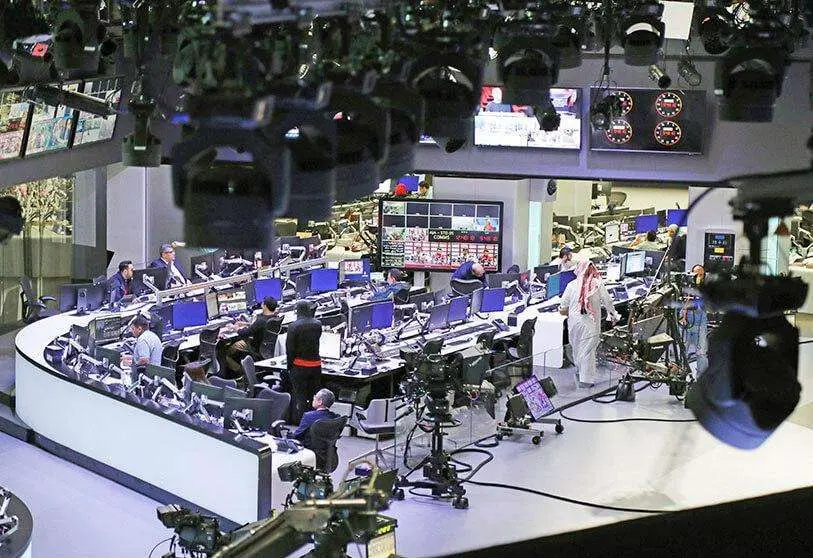AL24 News and Mediterranean audiovisual cooperation

Algeria has just launched the first continuous international news channel in North Africa, called AL24 News. It was a long-standing aspiration of Algerian public television, ever since it was chaired by Habib Chawki Hamraoui, a genuine champion of Mediterranean audiovisual cooperation. The so-called Barcelona Process was the framework that led to initiatives such as CoPeAm (Standing Conference of Mediterranean Audiovisual), the first major system for the exchange and joint production of news, reports and documentaries between public television stations on both sides of the Mediterranean. The technological gap between the two sides was bridged through courses and seminars in which European technicians and journalists, mainly from France, Italy and Spain, contributed to improving the capacities of their counterparts in Algeria, Tunisia, Morocco and Libya, in particular. All of these initiatives were actively promoted by Chawki Hamraoui.
Like the Barcelona Process itself, CoPeAm faded away in the wake of the Iraq war, which, among the many material, emotional and moral damages, took with it many of the projects to bring minds closer together and to shape common parameters for an interpretation that, while respecting the diversity between Europe and the Arab world, would define unquestionable bases for democracy and human rights.
As a former vice-president of CoPeAm representing RTVE, I particularly remember the 2005 general assembly held in the imposing building that housed the Moroccan Pavilion at the 1992 Expo in Seville, later converted into the headquarters of the Three Cultures Foundation. In that framework, the heads of public and private television channels from 25 Mediterranean countries signed the Seville Charter. A document, painstakingly negotiated and elaborated, which laid down the "ethical principles" that all CoPeAm members accepted. A giant step towards pushing the regimes most reluctant to loosen their shackles on freedom of expression and their respect for human rights.
Many of the signatories had to overcome strong resistance from their respective governments to sign the document, which also advocated issues such as "the obligation of public television stations to cooperate and help other Mediterranean channels with fewer resources to develop in order to avoid the so-called digital divide", and ultimately to create a Mediterranean area of economic and cultural cooperation throughout the basin. Thus, freely available documentary collections were born with a simple exchange principle: contribute one and benefit from having all the others; television festivals and specialised film productions. All this facilitated Arab television stations' almost free access to a large part of the images produced by European broadcasters.
The euphoria soon faded as a result of the global "war on terror" decreed by the United States after the 9/11 attacks, and especially the failed "Arab Springs". In the audiovisual sphere, the retreat was manifest and particularly dramatic. Each Arab country boosted its own national television stations, which were subjected to ruthless control, while Qatar's Al-Jazeera imposed itself as the only true pan-Arab channel with a pan-Arab vocation and a large media deployment all over the world. Euronews' project to become not only a pan-European news channel, but also the preferred audiovisual vehicle for Arab audiences, also faded away. To this end, it integrated the public television stations of Algeria, Egypt and Tunisia into its shareholding structure, although it failed in its attempt to incorporate Morocco and Syria.
The birth now of AL24 News, with versions in Arabic, French and English, shows that the "national" audiovisual model is being reinforced in the face of the international cooperative model, which is more subject to discipline, parameters and common democratic principles. Salim Aggar, its president, says that AL24 News aims primarily to be broadcast and viewed throughout Europe and to compete especially for the same audience that France24 enjoys today. It promises "a revolution in the audiovisual landscape in Algeria, North Africa and the entire Arab world". It is clear that from its headquarters in Algiers the new channel will become a militant medium, where issues such as Western Sahara and Algeria's dispute with Morocco will occupy the bulk of the programming.
Among colleagues, it is always appropriate to salute and wish the best wishes for any media outlet that goes out into the market, to compete and compete with similar media outlets. It would also remain to wish AL24 News not to neglect the cooperative dimension, even to contribute to peace and understanding in our Mediterranean Sea instead of stirring up differences and passions that facilitate confrontation and war.

